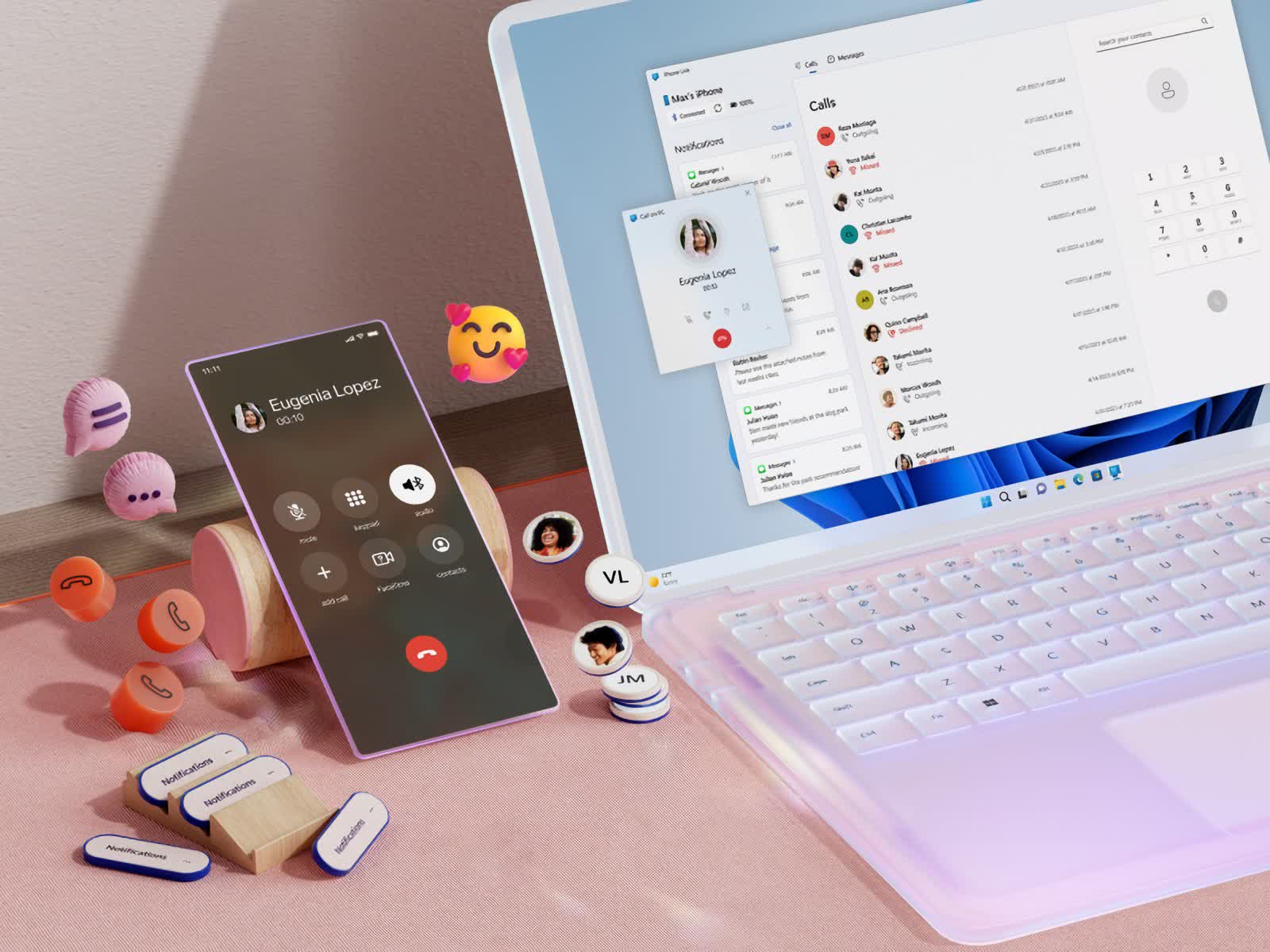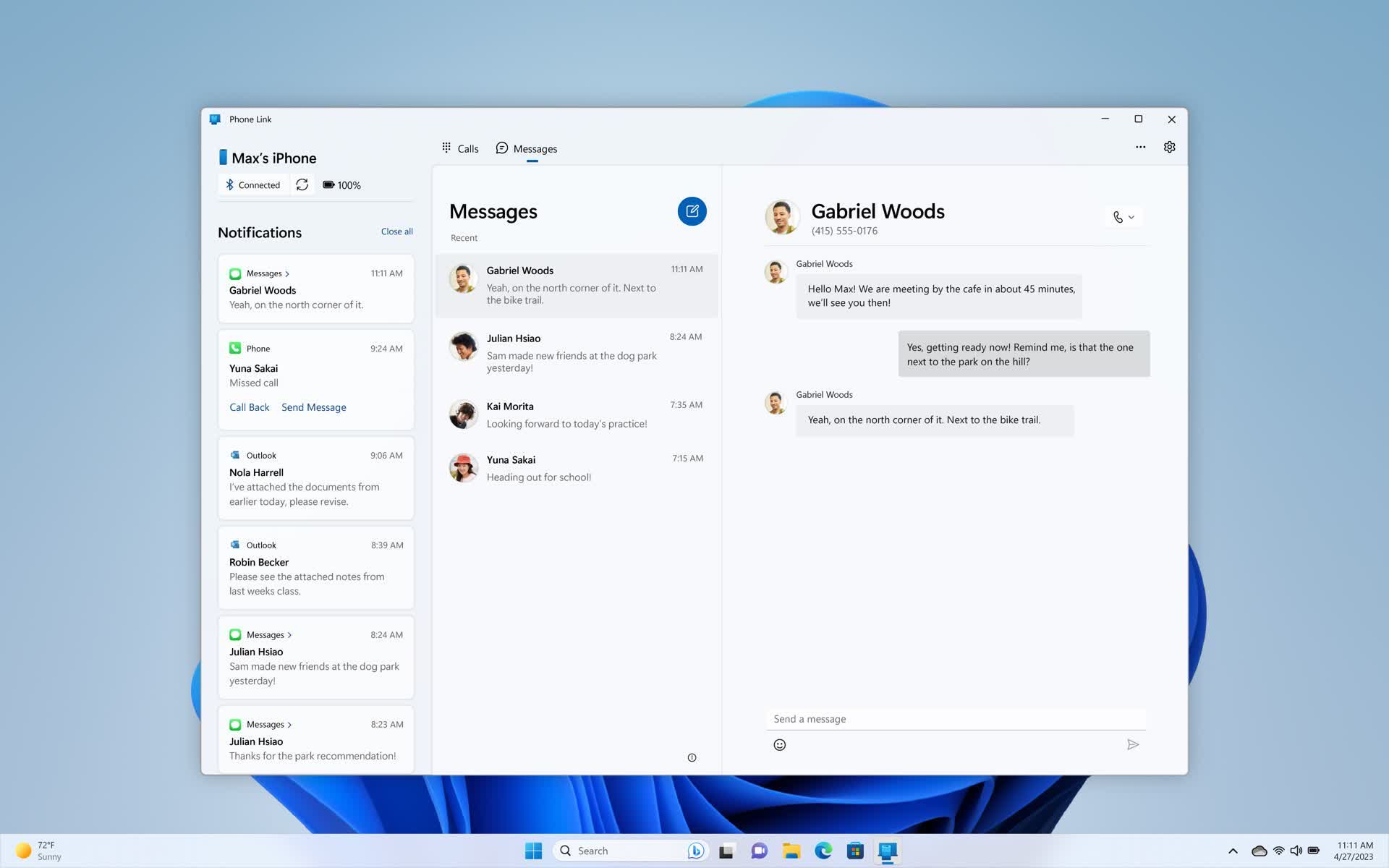In context: Microsoft's Phone Link app has been available to Android users since 2020. The smartphone-companion software allows the Android operating system to connect to Windows 10 and 11 devices via Bluetooth. Once connected, users can access the phone's contacts and most recent pictures, send SMS messages, check notifications, and make or answer phone calls from a PC.
On Wednesday, Microsoft launched its Phone Link app on iOS, rebranding it to "Link to Windows." The Redmond tech giant said it has the app on a "gradual rollout" to Windows 11 users. It hopes to finish the slow release by mid-May. The app recently made the rounds with Windows Insiders, who gave it a warm reception.
"We've heard positive feedback such as 'this is exactly what I've been hoping for on my Windows PC,'" Microsoft related in a press release.
However, one has to wonder if that was feedback for the Android version or iOS because the port is comparatively limited. Users can send and receive messages as long as they aren't group texts. They also cannot share photos or videos. Messages are "session-based," meaning that threads only persist as long as the device remains connected to the PC. When the session is over, the conversation is lost. It's also only compatible with Windows 11. The Android version has none of these limitations.
Perhaps the warm Insider reception was just because Link to Windows for iOS is better than other solutions. Even a saltine cracker tastes good if you are starving.
Mac users have long enjoyed the convenience of having all of their Apple devices seamlessly operate together via iCloud. Doing something on one machine, like sending a message, instantly updates the rest of the user's logged-in devices. Conversation histories persist across each platform with no fiddling. Like Steve Jobs was fond of saying, "It just works."
Link to Windows for Android attempts to do the same and is mostly successful even though it doesn't have near as many connectivity features. However, the iOS version falls far short. It's not Microsoft's fault, though.
Apple has a long track record of not cooperating with rivals. It tends to put user security above all else, even when users are willing to give up a little privacy protection for better interoperability. Phone Link can only grant access at the shallowest level. Pulling up your contacts is as deep as you're going to get, but if that's enough to have some functionality between your iPhone and PC, then Microsoft has succeeded.

